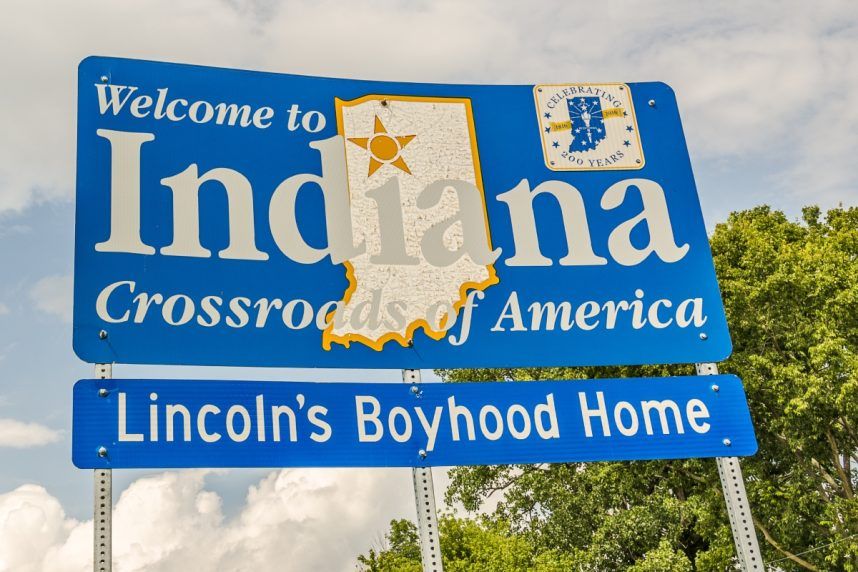Is Online Casino Gambling Coming to Indiana? Study Suggests Voters Opposed
Posted on: November 3, 2025, 11:35h.
Last updated on: November 5, 2025, 10:34h.
- A new poll concludes that Hoosiers don’t want iGaming
- The study comes from a group opposed to online casinos
- iGaming supporters say online gaming complements in-person play
Legislation in Indiana to legalize internet casinos made progress earlier this year before the General Assembly adjourned for its 2025 lawmaking session.

Introduced in January by Indiana Rep. Ethan Manning (R-Cass), House Bill 1432 would have allowed the state’s commercial casinos to operate as many as three iGaming platforms, or online casinos with digital slots and interactive table games. Indiana already has online sports betting.
Manning’s bill quickly cleared the House Public Policy Committee, not necessarily a surprise considering the Republican chairs the committee. The iGaming statute, however, stalled upon reaching the full House floor. The statute was subsequently referred down to the House Ways and Means Committee.
HB1432 was cosponsored by Reps. Cory Criswell (R-Hancock), Justin Moed (D-Marion), and Steve Bartels (R-Crawford).
Do Hoosiers Want iGaming?
A new poll commissioned by a trade group committed to blocking further expansion of legal iGaming in the United States finds that most Indiana residents don’t want online casinos.
The National Association Against iGaming (NAAiG) hired Pantheon Insight, a data solutions firm that conducts polling and qualitative analysis, most often for Republican campaigns, to gauge iGaming support across the Hoosier State. The survey found that as Hoosiers become more educated about iGaming, the less they support expanded gambling.
These results make it clear: once Hoosiers understand what iGambling really is, they reject it, across every region, party, and demographic,” declared NAAiG Board Member Daniel Reinhard, an attorney and lobbyist with Calfee who has represented Jack Entertainment, an NAAiG member, in its iGaming opposition.
Pantheon researchers found that almost seven in 10 (67%) Indiana voters oppose iGaming after learning about both the economic and mental health impacts that online casinos have purportedly delivered to the seven states where iGaming is currently allowed.
“Our survey didn’t just test opposition messages. It tested the industry’s own best arguments. Even then, Indiana voters see through the hype. They don’t want casino gambling on their phones,” Reinhard claimed.
The NAAiG argues that iGaming poaches play from physical casinos, which leads to reduced tax revenue, subdued regional economic benefits, and job losses. The negative consequences come all the while iGaming increases problem gambling and financial issues, so claims the lobbying group.
The NAAiG’s primary members are Jack Entertainment, Churchill Downs, and The Cordish Companies. Only Churchill has an Indiana property in the Terre Haute Casino Resort.
iGaming Support
iGaming supporters dismiss the NAAiG’s claims and counter that iGaming complements in-person casinos. They point to states like New Jersey, where iGaming revenue has grown exponentially, while legacy casino revenue has made gains, albeit smaller ones.
In New Jersey, the state where iGaming generates the most revenue among the seven legal markets, online slots and interactive table games through September reported gross gaming revenue (GGR) of more than $2.12 billion. That represents a 22.7% increase on the same nine months in the prior year.
Atlantic City casino revenue from the nine properties’ physical slots and tables totaled $2.2 billion. That marked a 2.5% year-over-year gain.
During an interview this year with Howard Glaser, the head of Light & Wonder’s government affairs, he said iGaming is a net positive.
We are primarily a land-based company; our numbers will show you this, but as a public company, we answer to our shareholders and investors. We’re for growth. In markets where iGaming is legal, it’s been complementary [to brick-and-mortar],” Glaser told Casino.org.
“They can reinforce each other and spur growth,” Glaser added.
Last Comments ( 2 )
"Indianans"? LOL, no one uses that term except maybe the woke losers who use the term Latinx to describe Hispanic people. Residents of Indiana are called Hoosiers; it's not that hard to Google that if you aren't familiar with the state.
Thanks, Alan. Updated. Admittedly wasn't aware it's such a ticking point for you Hoosiers.